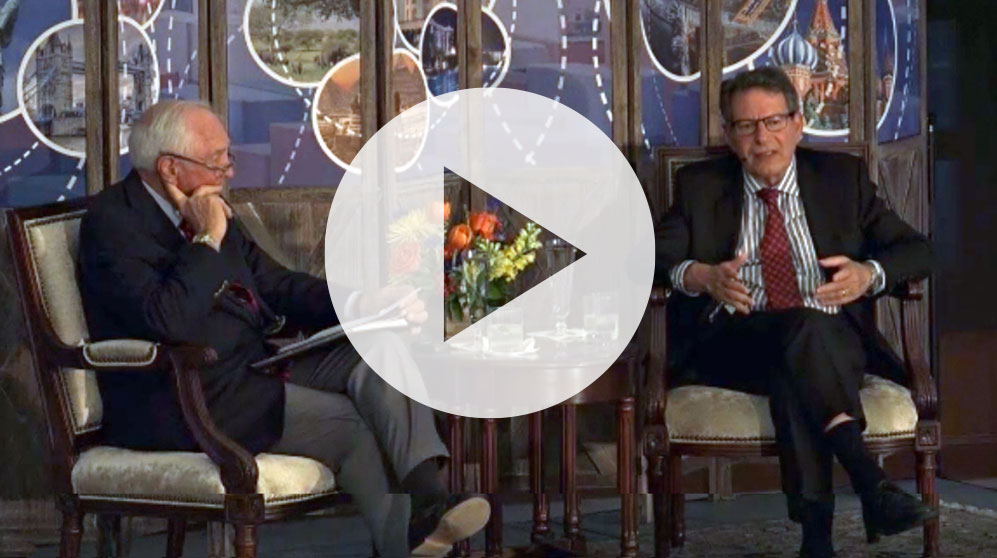Uncertainty Creates Risk and Opportunity
• 3 min read

Get the latest in Research & Insights
Sign up to receive an email summary of new articles posted to AMG Research & Insights.

COVID-19, along with the U.S. presidential primaries and election, has created a high level of uncertainty that has unsettled U.S. and world financial markets. There is little doubt amongst academics and Federal Reserve analysts that uncertainty can create market discounts and volatility like we have seen since the last days of February.
The uncertainty related to coronavirus has to do with the fact that we just don’t know how quickly the virus can be contained in the U.S. and the rest of the world. In all likelihood, as the more sophisticated testing kits become more widely available, we will see more reports of people in the U.S. being carriers of or being impacted by COVID-19. This will unsettle the markets even more.
But there is good news. The U.S. has two strong advantages in fighting the medical and economic impact of this virus. First, our medical system is the most advanced in the world. From care to research, our medical community’s ability to detect and treat this virus is exceptional.
Second, we have a strong economy in absolute and relative terms. COVID-19 will have an economic impact; however, it should be modest. Growth will slow substantially, most likely in the 2nd quarter, and yes, consumers will be more cautious during the next few months as we assess and treat COVID-19. Eventually, warm weather’s arrival, coupled with effective testing and treatment efforts, will hopefully cause the infection rate to dissipate. Successful containment will spark a rebound in growth.
Assuming containment happens by the end of the 2nd quarter, the American economy, thanks to the U.S. consumer, will begin to pick up steam in the 3rd quarter. World economies may take longer as they digest fiscal stimulus packages needed to move their economies back onto a growth trajectory. With quicker containment and appropriate monetary and fiscal policies, for the most part, economies should be able to recover most of the recent economic losses.
The uncertainty associated with the elections has to do with more-permanent change. Dramatic changes either in fiscal policy, foreign policy, taxation or government programs cause an anxiety, regardless of political party. “What if” scenarios begin to appear and get played out in national media conversations. Market pricing starts to reflect the possible outcomes of the election. November elections will resolve this issue.
Until the virus starts to subside and the direction in the national elections seems more certain or decided, market volatility will rule the day, with big moves up and down. So, what should you be doing now to protect your wealth and be positioned to take advantage of opportunities in the future?
- First, remember that the U.S. economy is fundamentally strong, and it will eventually get back on its growth path.
- Portfolio diversification and commitment to long-term strategies are key to mitigating downside risks. This is one of the reasons we recommend that clients keep cash and cash flow in their portfolios to cover 12-24 months of needs, so they don’t have to sell equities when the market dips.
- As market volatility subsides, expect stock market discounts to start to disappear.
With over 45 years helping clients manage their wealth, we know that great opportunities are often created during times of volatility and uncertainty. Being prepared to take advantage of these unique situations is the opportunity. We are committed to helping you protect, grow and manage your wealth over the long term.
This information is for general information use only. It is not tailored to any specific situation, is not intended to be investment, tax, financial, legal, or other advice and should not be relied on as such. AMG’s opinions are subject to change without notice, and this report may not be updated to reflect changes in opinion. Forecasts, estimates, and certain other information contained herein are based on proprietary research and should not be considered investment advice or a recommendation to buy, sell or hold any particular security, strategy, or investment product.
Get the latest in Research & Insights
Sign up to receive a weekly email summary of new articles posted to AMG Research & Insights.




